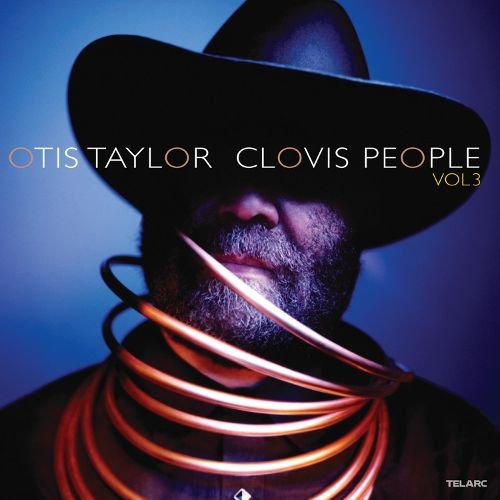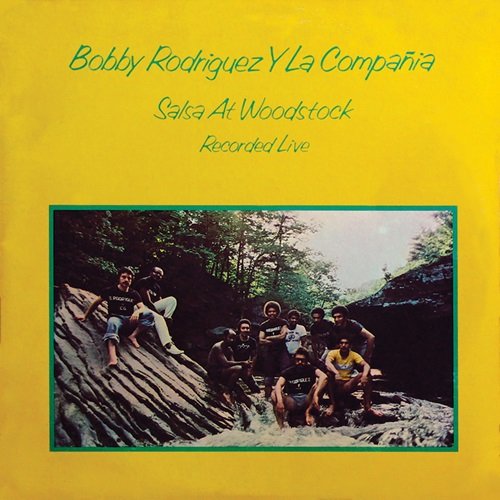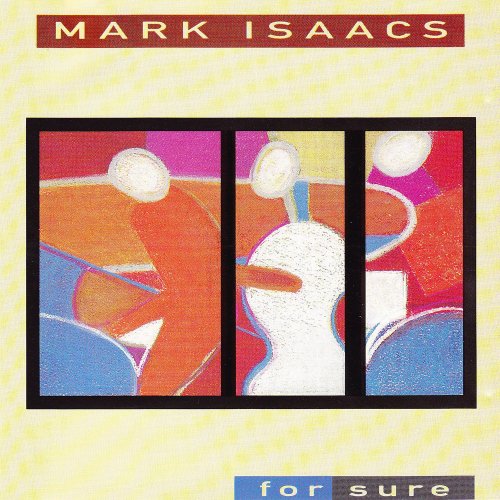Otis Taylor - Clovis People Vol. 3 (2010) FLAC

Artist: Otis Taylor
Title: Clovis People Vol. 3
Year Of Release: 2010
Label: Telarc
Genre: Acoustic, Country Blues
Quality: FLAC (tracks+.cue, log)
Total Time: 49:38
Total Size: 281 MB
WebSite: Album Preview
Tracklist:Title: Clovis People Vol. 3
Year Of Release: 2010
Label: Telarc
Genre: Acoustic, Country Blues
Quality: FLAC (tracks+.cue, log)
Total Time: 49:38
Total Size: 281 MB
WebSite: Album Preview
1. Rain So Hard (05:53)
2. Little Willie (04:52)
3. Lee And Arnez (04:33)
4. It's Done Happened Again (03:39)
5. Past Times (03:50)
6. She's Ice In The Desert (04:09)
7. Hands On Your Stomach (03:49)
8. Harry, Turn The Music Up (04:03)
9. Ain't No Cowgirl (03:23)
10. Babies Don't Lie (04:00)
11. Coffee Woman (03:40)
12. Think I Won't (03:47)
Over a decade, folk-blues songwriter Otis Taylor has come up with compelling, often puzzling album titles; Clovis People, Vol. 3 is no exception. For starters, there aren’t any previous volumes. Also, the Clovis People he refers to don’t exist. Their name was chosen by archaeologists near Taylor’s own home in Pueblo, Colorado, who discovered the tools and pottery of a culture that had died out over 13,000 years ago.
Taylor’s approach is quite spare and atmospheric, though his ensemble is sometimes exotic: some of his guests include jazz trumpeter Ron Miles, electric guitar slinger Gary Moore, Fara Tolno on djembe, pedal steel guitarist Chuck Campbell, and his regulars, daughter Cassie on bass and theremin, and Larry Thompson on drums, along with assorted guests. Taylor’s trademark vocals and guitar are ever-present. These blues are moody, sometimes menacing: “Little Willie” is a narrative account of a young boy shot dead on a school playground. A biting lead guitar line is answered by Taylor’s stuttering rhythmic one. Campbell’s pedal steel weaves between the two as Cassie’s bass rumbles, and the skeletal, pulsing crackle of Thompson’s kit heats up Taylor's moan toward a biting crescendo. On “Rain So Hard,” Miles' trumpet paints Taylor’s National steel with ethereal single notes and short runs, as a theremin, pedal steel, and a cello fill out the bottom. It’s a slow, hypnotic John Lee Hooker-esque shuffle about lost love. “Lee and Arnez” is a folk song textured by Moore’s trademark guitar snarl, a violin, and an organ. Its fragmented narrative is about race and changing times. Taylor’s reclaiming the ghosts of people he knew and staking a claim to what was always true, even if America didn’t know it at the time (and may still not): “There’s no color/there’s no difference.” “Ain’t No Cowgirl” features Moore's electric guitar against Tolno's djemebe. They snake and pulse under a sparse lyric about a truly dangerous woman. “Think I Won’t” returns us to the school yard. Fiddle, pedal steel, bass, guitars, and drums create the musical backbone that allows a mother to confront a drug dealer. How it ends Taylor doesn’t say, but the music offers enough pent-up rage and righteous anger that we can guess. Clovis People, Vol. 3 adds significantly to Taylor’s increasingly ambitious body of work. He mines new territory from an ancient--perhaps prehistoric--blues with grit, humanity, and an elliptical musical personality.
Taylor’s approach is quite spare and atmospheric, though his ensemble is sometimes exotic: some of his guests include jazz trumpeter Ron Miles, electric guitar slinger Gary Moore, Fara Tolno on djembe, pedal steel guitarist Chuck Campbell, and his regulars, daughter Cassie on bass and theremin, and Larry Thompson on drums, along with assorted guests. Taylor’s trademark vocals and guitar are ever-present. These blues are moody, sometimes menacing: “Little Willie” is a narrative account of a young boy shot dead on a school playground. A biting lead guitar line is answered by Taylor’s stuttering rhythmic one. Campbell’s pedal steel weaves between the two as Cassie’s bass rumbles, and the skeletal, pulsing crackle of Thompson’s kit heats up Taylor's moan toward a biting crescendo. On “Rain So Hard,” Miles' trumpet paints Taylor’s National steel with ethereal single notes and short runs, as a theremin, pedal steel, and a cello fill out the bottom. It’s a slow, hypnotic John Lee Hooker-esque shuffle about lost love. “Lee and Arnez” is a folk song textured by Moore’s trademark guitar snarl, a violin, and an organ. Its fragmented narrative is about race and changing times. Taylor’s reclaiming the ghosts of people he knew and staking a claim to what was always true, even if America didn’t know it at the time (and may still not): “There’s no color/there’s no difference.” “Ain’t No Cowgirl” features Moore's electric guitar against Tolno's djemebe. They snake and pulse under a sparse lyric about a truly dangerous woman. “Think I Won’t” returns us to the school yard. Fiddle, pedal steel, bass, guitars, and drums create the musical backbone that allows a mother to confront a drug dealer. How it ends Taylor doesn’t say, but the music offers enough pent-up rage and righteous anger that we can guess. Clovis People, Vol. 3 adds significantly to Taylor’s increasingly ambitious body of work. He mines new territory from an ancient--perhaps prehistoric--blues with grit, humanity, and an elliptical musical personality.
![Matt Monro - Matt Sings Monro (Live at the BBC, Remastered 2023) [Hi-Res] Matt Monro - Matt Sings Monro (Live at the BBC, Remastered 2023) [Hi-Res]](https://www.dibpic.com/uploads/posts/2026-02/1771586614_k3yj19donljhc_600.jpg)
![Susie Philipsen - Sunday Kissing Club (2026) [Hi-Res] Susie Philipsen - Sunday Kissing Club (2026) [Hi-Res]](https://www.dibpic.com/uploads/posts/2026-02/1771738386_500x500.jpg)
![Magda Mayas' Filamental - Murmur (2026) [Hi-Res] Magda Mayas' Filamental - Murmur (2026) [Hi-Res]](https://www.dibpic.com/uploads/posts/2026-02/1771663724_i3cjtptz4ae2l_600.jpg)

![Joe Pass - Virtuoso (1974) [2025 DSD256] Joe Pass - Virtuoso (1974) [2025 DSD256]](https://www.dibpic.com/uploads/posts/2026-02/1771609997_ff.jpg)



![Bill Champlin - Through It All (1994) [Japanese Edition] Bill Champlin - Through It All (1994) [Japanese Edition]](https://www.dibpic.com/uploads/posts/2026-02/1771699229_ff.jpg)